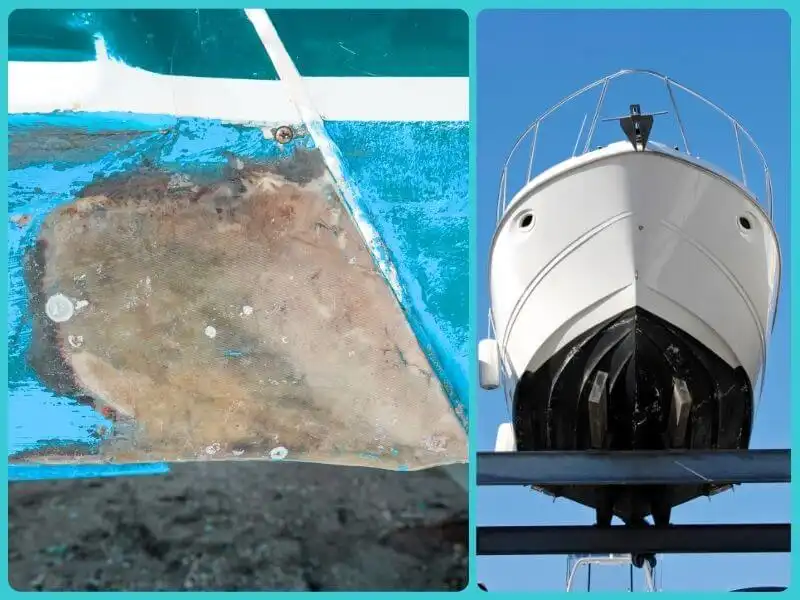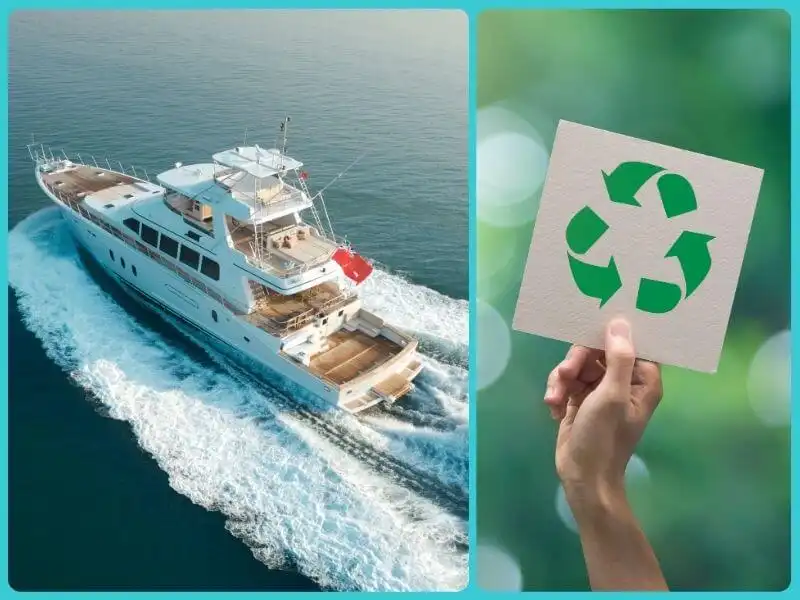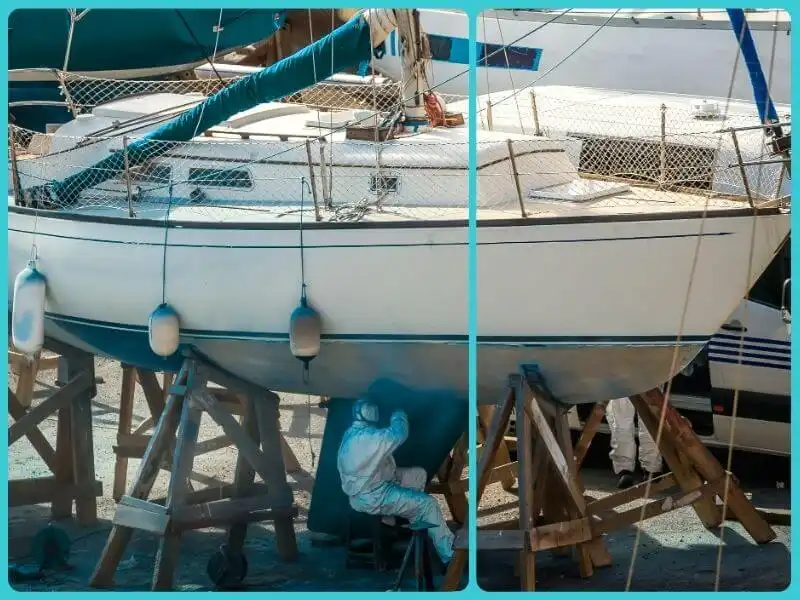
- 22.07.2024.
- News, Regulations, Management
We are at a time when the maritime community faces a daunting challenge. Marine waste, particularly from the nautical sector, has expanded into a crisis that demands immediate attention.
Yachting and sailing epitomize luxury, adventure, and freedom of movement, yet they are also responsible for environmental stewardship.
Why does this matter? The yacht charter industry is at the crossroads – not to choose between business expansion and responsibility, but to do both simultaneously.
The lifecycle of one yacht is marked by adventures, but its end often involves some environmental decisions. When a yacht "retires, " its fate hinges on whether it will be sold, repurposed, or disposed of.
Unfortunately, many vessels find their final docking at shipbreaking yards.
These yards, frequently located in less regulated regions such as South Asia, are not exactly known for their environmental and safety standards.
Damaged or obsolete vessels face a grim destiny of being dismantled. Not every vessel ends its days in pristine condition; many are decommissioned due to irreparable damage, because they've become technologically outdated, or their refit is too much of an investment.
Such vessels are also extreme marine pollutants.
So, there is an urgent need for sustainable end-of-life practices for yachts and sailboats to lessen their environmental impact.

The environmental riptide - consequences of neglect
The neglect of retired vessels has far-reaching ecological consequences, with each abandoned vessel acting as a miniature source of pollution.
These yachts, if not disposed of properly, become reservoirs for a variety of pollutants:
Plastics
Components such as synthetic ropes, vinyl seats, and fibreglass hulls do not biodegrade and can persist for centuries. These materials slowly fragment into microplastics, which can be ingested by marine life, entering and climbing up the food chain.
Metals
Metals used in yacht construction, such as lead (from keels) and copper (from wiring and plumbing), can be toxic to marine flora and fauna, disrupting biological functions of ecosystems.
Persistent organic pollutants (POPs)
Many yacht components contain POPs like polychlorinated biphenyls (PCBs) found in sealants and paints. These chemicals are highly toxic pollutants and collectively contribute to the degradation of marine ecosystems, affecting biodiversity and the health of the seas.
Toxic paints
Antifouling paints used to coat the hulls of boats contain biocides to prevent organisms from adhering to the surfaces. These paints often contain copper and other harmful chemicals, posing severe risks to marine life.

Why is yacht recycling so "tough"?
Issues about yacht recycling are complex due to the sophisticated engineering and diverse materials used in their construction.
These factors combined, make yacht recycling a technically demanding and expensive process, requiring technology and significant investment in infrastructure and training.
The complexity of the task underscores the need for industry-wide standards and innovative recycling technologies to efficiently handle the last phase of vessels.
Here are just a few issues that create significant difficulty for vessel recycling:
Composite materials
Many modern yachts use composite materials like fibreglass and carbon fibre for hulls and structures. These materials are prized for their strength and durability but are notoriously difficult to break down and recycle. Fibreglass, for instance, is a composite of glass fibres and resin, which requires specialized processes to separate and repurpose.
Metals and alloys
Yachts also incorporate various metals and alloys, including stainless steel, aluminium, and sometimes metals like titanium. Each type of metal must be separated and processed differently, complicating the recycling process.
Technical components
Modern vessels are equipped with advanced electronics, batteries, and hydraulic systems, each containing potentially hazardous materials. Safely dismantling these components and handling their toxic substances demands careful procedures and protective measures.
Hazardous materials
Older yachts can contain asbestos in their insulation and lead in their keels. Safely extracting and disposing of these materials requires meticulous work to prevent environmental contamination and protect workers' health.
Transportation
The sheer size and weight of some yachts pose logistical challenges. Transporting large hulls from marinas to recycling facilities requires specialized equipment and vehicles, adding to the cost and complexity of recycling.
Lack of facilities
Not all regions have facilities equipped to handle yacht dismantling, meaning vessels sometimes need to be transported long distances, which can be both costly and environmentally taxing.

Europe - leading the "wave" with regulations and practices
Europe has established itself as a pioneer in the recycling of boats, driven by stringent regulations and a commitment to sustainability.
The European Union has implemented comprehensive directives to reduce marine pollution and promote recycling practices.
For instance, the EU's Waste Framework Directive mandates the responsible disposal and recycling of vessels.
Countries like France have taken proactive steps by introducing a boat decommissioning plan funded by eco-taxes on new boats. This plan ensures that boats are dismantled safely, and materials are recycled as much as possible.
France was among the first in Europe to establish a fully regulated boat recycling network.
The Netherlands operates several specialized facilities that use advanced technology to recycle nearly every part of a boat, from fibreglass to metal and electronic components, setting a high standard for the industry.
Innovative recycling solutions
Innovative recycling solutions are transforming the fate of old vessels, providing both sustainable outcomes and creative new uses.
One of the remarkable stories comes from the transformation of decommissioned yachts into artificial reefs.
Some of the more interesting solutions are those on the transformation of yachts withdrawn from sailing into artificial reefs. "Old" yachts are cleaned and sunk to create prosperous marine habitats, improving underwater ecosystems and promoting biodiversity.
There is a growing trend of upcycling parts of old yachts into high-end furniture and art pieces. Companies like Boat Yard Studios specialize in turning reclaimed boat wood and metal into stylish décor and furniture, giving these materials a second life in a form that marries function with high-end design.
In a notable collaboration, SUEZ and TerraCycle have joined forces to develop innovative recycling solutions across several European countries, including Belgium, Finland, France, the Netherlands, the UK, and Sweden. This partnership focuses on transforming previously non-recyclable waste into new secondary resources, showing a commitment to closing the loop in waste management.

How the yacht industry can make the change
Nevertheless, the yacht industry is increasingly grasping sustainability as a core component of its business model, with numerous companies pioneering eco-friendly ventures.
These forward-thinking companies are integrating sustainable designs and materials into their products, significantly reducing the ecological footprint of new yachts.
For example, Silent Yachts is an innovator in solar-powered catamarans, using electric propulsion systems that eliminate the need for fossil fuels.
Companies like Sunreef Yachts are leading the way by incorporating eco-friendly materials and hybrid propulsion systems into their designs, demonstrating that luxury and environmental responsibility can coexist.
Also, some yacht manufacturing companies build their vessels using recyclable materials and natural fibres, minimizing environmental impact while maintaining performance and luxury.
The route ahead for yacht recycling
As we look at the progress made and the journey ahead, it is evident that sustainability and recycling of yachts have become solutions that are taken for granted.
Today's vessel must not be turned into tomorrow's environmental burden.
However, initiatives such as the Clean Seas campaign encourage everyone at all levels in the nautical and marine industry to commit to reducing marine litter.
What everyone in the yacht charter and boating industry should pay more attention to is a commitment to closing the loop on waste management.
Everyone from the manufacturer to the yacht charter owner and even to all those who sail and relax on these vessels should, i.e. have to, devote themselves more to the idea - where with the vessel after it sails its last season?
It is up to us all to leave the sea and the environment better than we found it, if not for ourselves and all those who come after us, right?
Think how much you yourself can do, in which initiative to participate (or even start it yourself) in the "last voyage" of your vessels or vessels under your management.
Until then, stay informed about all the news in the world charter and beyond and sign up for our newsletter.
Categories of trends
- News
- Sale
- Marketing
- SEO
- Web design
- Social media
- Technology
- Regulations
- Management
- Education
- Finances
- User experience
Newsletter
Sign up for the newsletter and receive the latest trends and tips straight to your inbox



